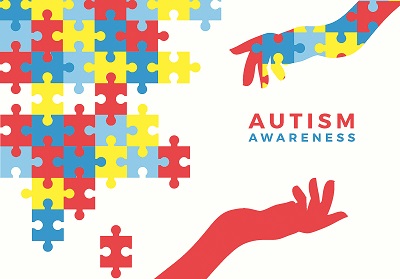By: Mamosa Maitin
Autism spectrum disorder (ASD) is a complex neurodevelopmental condition characterized by challenges in social interaction, communication, and behaviour. Understanding the various realms of development in autism is crucial for providing comprehensive support and interventions tailored to the unique needs of individuals on the spectrum. In this essay, we will delve into six key realms of development in autism: social, communication, cognitive, sensory processing, motor skills, and emotional development.
Social Development
One of the hallmark features of autism is difficulties in social interaction. Children with autism may struggle to initiate and maintain conversations, interpret social cues such as facial expressions and body language, and develop meaningful relationships with peers. This deficit in social reciprocity can have far-reaching implications, impacting academic, vocational, and interpersonal domains throughout the lifespan.
Interventions targeting social development in autism often focus on teaching social skills through structured interventions such as social stories, role-playing exercises, and peer-mediated strategies. Early intervention programs, such as applied behaviour analysis (ABA) and social skills groups, aim to enhance social communication abilities and promote positive social interactions.
Communication Development
Communication challenges are pervasive in autism, ranging from delayed language acquisition to difficulties with pragmatic language and nonverbal communication. Some individuals with autism may exhibit echolalia (repeating words or phrases), limited vocabulary, or atypical speech patterns. Others may rely on alternative communication systems such as picture exchange communication systems (PECS) or augmentative and alternative communication (AAC) devices.
Speech therapy is a cornerstone of communication intervention in autism, targeting expressive and receptive language skills, pragmatics, and social communication. Augmentative communication devices, such as tablets with communication apps, can provide nonverbal individuals with a means to express their thoughts and needs effectively.
Cognitive Development
Cognitive abilities in autism vary widely, with some individuals demonstrating exceptional skills in specific areas such as mathematics, music, or visual-spatial reasoning. However, many individuals with autism experience challenges in executive functioning, flexible thinking, and abstract reasoning. This can impact academic achievement, problem-solving abilities, and adaptive functioning in daily life.
Educational interventions for cognitive development in autism often incorporate individualized instruction, visual supports, and structured routines to accommodate learning differences. Specialized programs focusing on executive functioning skills, such as organization, planning, and time management, can help individuals with autism navigate academic and vocational settings more effectively.
Sensory Processing
Sensory processing differences are common in autism, with individuals experiencing heightened sensitivity (hypersensitivity) or diminished sensitivity (hyposensitivity) to sensory stimuli. Sensory challenges can manifest in various ways, such as aversion to certain textures, intolerance of loud noises, or seeking out intense sensory experiences. These sensory differences can significantly impact daily functioning and contribute to difficulties in regulating emotions and behaviors.
Sensory integration therapy, occupational therapy, and sensory-based interventions are commonly used to address sensory processing difficulties in autism. These interventions aim to modulate sensory input, improve self-regulation skills, and enhance participation in activities of daily living.
Motor Skills Development
Motor skills development in autism encompasses both gross motor skills (e.g., coordination, balance, locomotion) and fine motor skills (e.g., hand-eye coordination, manipulation, handwriting). Many individuals with autism experience challenges in motor coordination, which can affect their ability to participate in sports, engage in physical activities, and perform tasks that require precise movements.
Physical therapy and occupational therapy play integral roles in addressing motor skills deficits in autism. These therapies focus on improving motor coordination, strength, balance, and dexterity through structured exercises, sensory-motor activities, and adaptive equipment.
Emotional Development
Emotional development in autism is multifaceted, involving the identification, expression, and regulation of emotions. Many individuals with autism struggle to recognize and interpret their own emotions as well as the emotions of others, leading to difficulties in empathy, perspective-taking, and social-emotional reciprocity. Additionally, individuals with autism may experience heightened levels of anxiety, depression, or emotional dysregulation due to challenges in coping with change, sensory overload, or social stressors.
Psychological interventions such as cognitive-behavioral therapy (CBT), mindfulness-based techniques, and social-emotional learning programs can support emotional development in autism by promoting self-awareness, emotion regulation, and coping skills. These interventions empower individuals with autism to navigate social interactions, manage stressors, and foster resilience in the face of adversity.
In conclusion, the realms of development in autism are multifaceted and interconnected, encompassing social, communication, cognitive, sensory, motor, and emotional domains. Effective interventions tailored to the unique strengths and challenges of individuals with autism are essential for promoting optimal development, enhancing quality of life, and fostering inclusion in society
Mamosa Maitin


